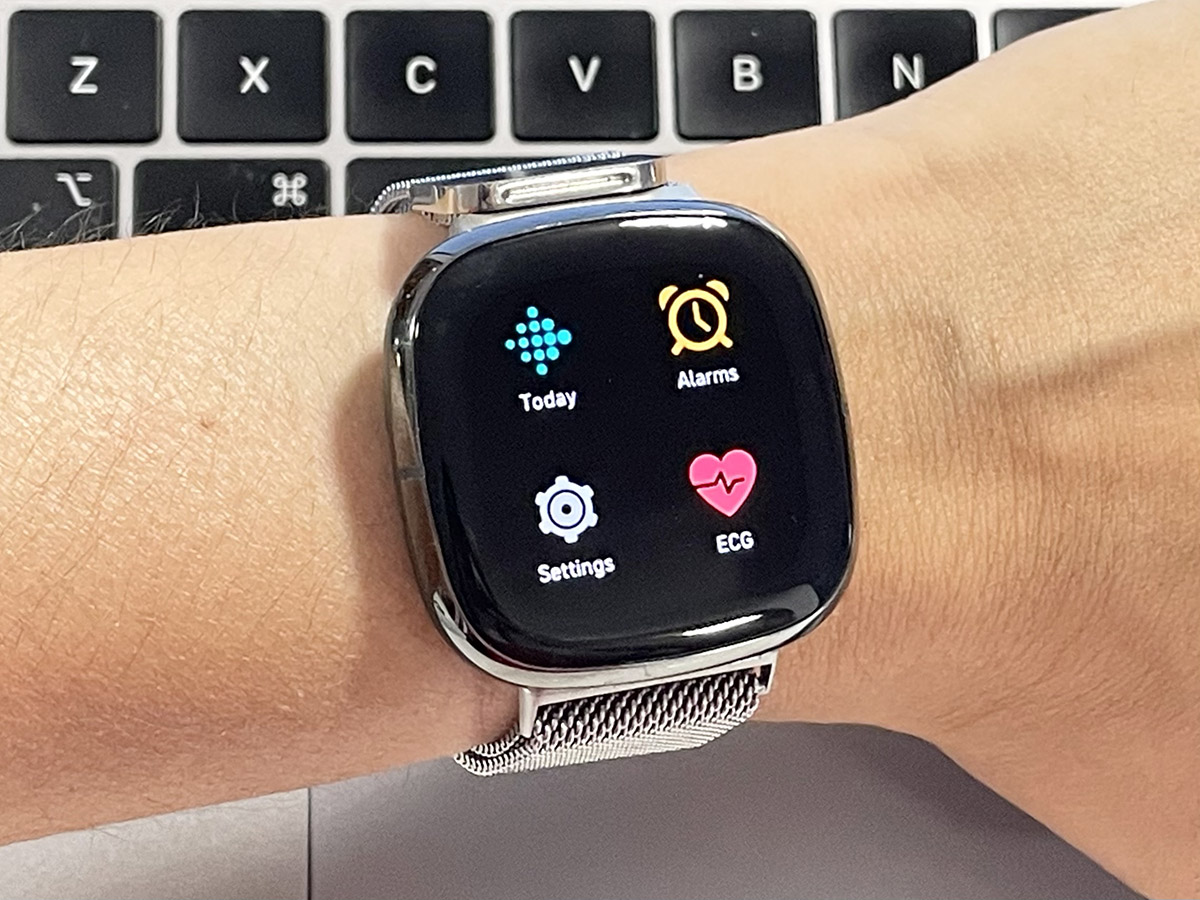Fitbit’s electrocardiogram app is now live in South Africa, available on all Sense devices. The ECG app came preloaded on the Sense and will let wearers assess heart rhythm for atrial fibrillation (AFib), which can be shared with a doctor. AFib is a condition that affects more than 33.5 million people globally (Source: Worldwide Epidemiology of Atrial Fibrillation).

The Sense was released last year during the pandemic with extra sensors when compared to the identical Versa 3, to measure and track stress levels, and help manage it.
The ECG app is simple to use, just navigate to the app on the preloaded apps section and open the Fitbit app on your smartphone. You need to go into the Discover tab> Assessments & Reports> Heart Rhythm Assessment to get enable it.

It also shows you how to take the ECG but the app itself is self explanatory and you simply hold still for 30 seconds with your index and thumb on the two corners, as indicated above.

Once the reading is complete, you will see the app analysing the results and within a few seconds you will see the basic reading.

All your results can then be accessed on the Fitbit App. You can view past results and export them as a PDF to send to your doctor.
The app is very clear in indicating what it cannot detect heart attacks, blood clots, a stroke or other heart conditions. I know things like this have to be stated, but if you’re having a medical emergency call your doctor or ambulance.

According to a Fitbit release, in South Africa, cardiovascular disease is responsible for almost 1 in 6 deaths. It said AFib, an irregular heart rhythm that increases the risk of serious complications like stroke, can be particularly difficult to detect, as episodes can sometimes show no symptoms.
Fitbit conducted clinical trials in the US and the study evaluated its algorithm’s ability to accurately detect AFib from normal sinus rhythm and to generate an ECG trace, or recording of a heart’s electrical rhythm, that is qualitatively similar to a Lead I ECG.
Fitbit says the study showed that the algorithm exceeded target performance, demonstrating the ability to detect 98.7% of AFib cases (sensitivity) and was 100% accurate in identifying study participants with normal sinus rhythm (specificity).
Nafisa Akabor
Related posts
ABOUT

Recharged is an independent site that focuses on technology, electric vehicles, and the digital life by Nafisa Akabor. Drawing from her 16-year tech journalism career, expect news, reviews, how-tos, comparisons, and practical uses of tech that are easy to digest. info@recharged.co.za


